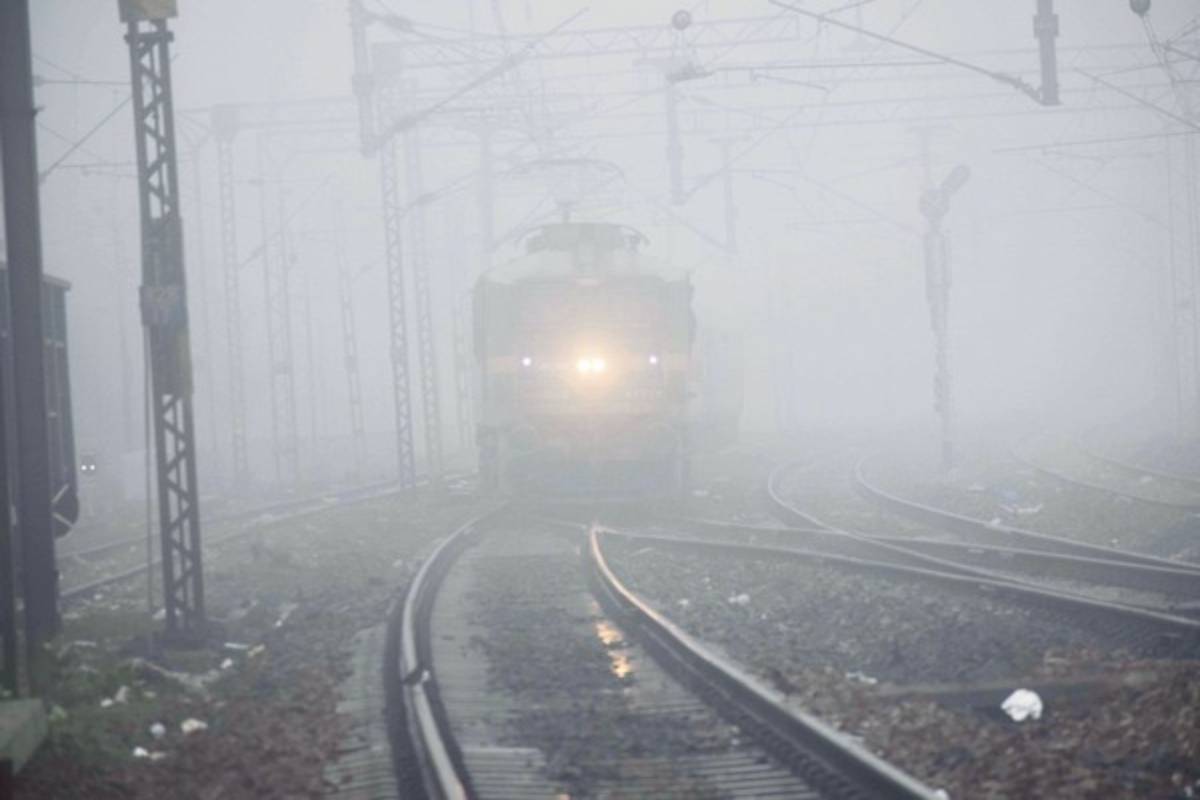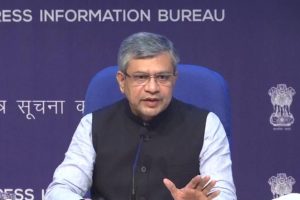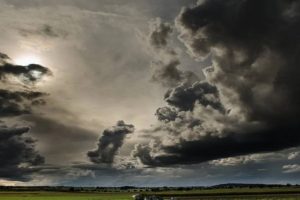A total of 26 trains are experiencing significant delays across the country as dense fog disrupts rail operations, causing reduced visibility, according to Indian Railways on Wednesday. For the past several days, heavy fog and inclement weather conditions have hindered transportation, leading to widespread delays.
Major Train Delays Include:
- Bihar S Kranti (12565): 285 minutes
- Shr Ram Shakti Exp (12561): 290 minutes
- Gorakhdham Exp (12555): 255 minutes
- NDLS Humsafer (12275): 195 minutes
- Mahabodhi Exp (12397): 160 minutes
- Ayodhya Exp (14205): 189 minutes
- LKO NDLS AC Exp (14209): 370 minutes
In addition to transport delays, Delhi continues to grapple with deteriorating air quality. The Air Quality Index (AQI) in the national capital dropped to 344 (‘very poor’) on Wednesday morning, as per the Central Pollution Control Board (CPCB), marking a significant decline from 252 the previous day.
Key AQI Readings in Delhi:
- Vivek Vihar: 414 (severe)
- Wazirpur: 408 (severe)
- Nehru Nagar: 394 (very poor)
- Okhla Phase-2: 380 (very poor)
- Rohini: 399 (very poor)
Other areas, including Mandir Marg (378), RK Puram (373), and Patparganj (390), also reported dangerously high AQI levels. Vivek Vihar recorded the highest AQI at 414, indicating severe pollution.
Dense fog has also impacted flight operations at Indira Gandhi International (IGI) Airport, causing delays as cold wave conditions intensify across northern India. Homeless individuals in the capital have sought refuge in night shelters as the harsh winter chill continues to affect the region.
With both rail and air travel disrupted and pollution levels soaring, authorities are urging residents to take necessary precautions, particularly vulnerabledel groups such as children, the elderly, and those with respiratory issues.





